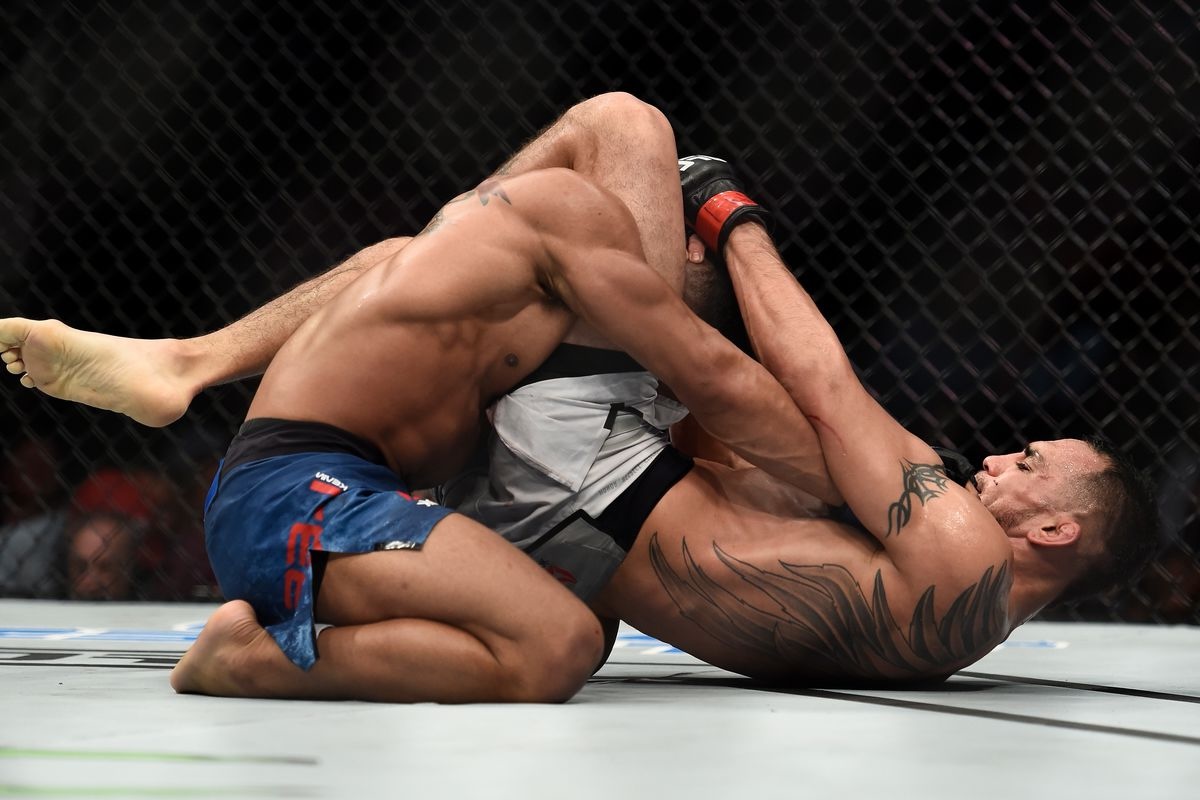
Brazilian Jiu-Jitsu (BJJ) has become a cornerstone of mixed martial arts, especially in the UFC. Ever wondered why so many fighters rely on this grappling art? BJJ focuses on ground fighting and submission holds, making it perfect for the octagon. Fighters like Royce Gracie showcased its effectiveness, changing the sport forever. Today, champions like Demian Maia and Charles Oliveira continue to prove its worth. But there's more to BJJ in the UFC than just submissions. From its origins to its evolution, let's explore 16 fascinating facts that highlight why this martial art is indispensable in the world of mixed martial arts.
The Origins of Brazilian Jiu-Jitsu in the UFC
Brazilian Jiu-Jitsu (BJJ) has played a pivotal role in shaping the UFC. This martial art focuses on ground fighting and submission holds, making it a game-changer in mixed martial arts (MMA). Here are some fascinating facts about BJJ in the UFC.
-
Royce Gracie, a BJJ practitioner, won three of the first four UFC tournaments. His victories showcased the effectiveness of BJJ against larger and stronger opponents.
-
The Gracie family, pioneers of BJJ, were instrumental in founding the UFC. They wanted to prove their martial art's superiority in real combat situations.
-
BJJ emphasizes technique over strength. This allows smaller fighters to defeat larger opponents by using leverage and precise movements.
Key Techniques and Strategies
BJJ is known for its unique techniques and strategies that have become essential in MMA. These techniques focus on controlling and submitting opponents.
-
The rear-naked choke is one of the most effective submissions in BJJ. It involves wrapping the arms around the opponent's neck and squeezing until they tap out or lose consciousness.
-
Armbar submissions are another staple of BJJ. This technique hyperextends the opponent's elbow, forcing them to submit or risk serious injury.
-
The guard position is a fundamental aspect of BJJ. Fighters use their legs to control their opponent from the bottom, setting up sweeps and submissions.
BJJ's Influence on Modern UFC Fighters
Many modern UFC fighters have incorporated BJJ into their training, making it a crucial part of their skill set. This has led to a more well-rounded approach to fighting.
-
Demian Maia, a BJJ black belt, has used his grappling skills to dominate opponents in the UFC. His mastery of BJJ has earned him numerous victories.
-
Charles Oliveira, another BJJ black belt, holds the record for the most submission wins in UFC history. His ability to finish fights on the ground is unparalleled.
-
BJJ training improves overall fitness. The intense grappling sessions build strength, endurance, and flexibility, making fighters more resilient.
The Evolution of BJJ in the UFC
BJJ has evolved significantly since its introduction to the UFC. Fighters have adapted and refined their techniques to stay competitive in the ever-changing landscape of MMA.
-
The introduction of no-gi BJJ has changed the game. Fighters now train without the traditional gi, focusing on techniques that are more applicable to MMA.
-
Cross-training in other martial arts has become common. Fighters blend BJJ with striking arts like Muay Thai and boxing to create a more versatile fighting style.
-
The rise of wrestling in MMA has influenced BJJ practitioners. Many fighters now incorporate wrestling takedowns and control techniques into their BJJ game.
BJJ Gyms and Training Camps
BJJ gyms and training camps have become breeding grounds for future UFC champions. These facilities offer specialized training to help fighters hone their skills.
-
Renzo Gracie Academy in New York is one of the most renowned BJJ gyms. Many top UFC fighters have trained there to improve their grappling skills.
-
American Top Team (ATT) is another prominent training camp. ATT fighters have achieved great success in the UFC, thanks to their comprehensive training programs.
-
The evolution of online BJJ training has made it accessible to more people. Fighters can now learn techniques and drills from world-class instructors through video tutorials.
The Future of BJJ in the UFC
As the UFC continues to grow, BJJ will remain a vital component of MMA. The sport's emphasis on technique and strategy ensures its relevance in the ever-evolving world of combat sports.
- The next generation of fighters is already making waves. Young BJJ practitioners are entering the UFC with advanced skills, pushing the boundaries of what is possible in the octagon.
The Impact of Brazilian Jiu-Jitsu on the UFC
Brazilian Jiu-Jitsu (BJJ) has undeniably shaped the UFC landscape. From Royce Gracie's early dominance to modern fighters like Demian Maia and Charles Oliveira, BJJ has proven its effectiveness in mixed martial arts. This martial art emphasizes technique over brute strength, allowing smaller fighters to compete successfully against larger opponents. BJJ's focus on ground control, submissions, and positional strategy has become a cornerstone of MMA training.
Moreover, BJJ's influence extends beyond the octagon. It has fostered a global community, promoting discipline, respect, and continuous learning. Gyms worldwide now offer BJJ classes, making it accessible to people of all ages and backgrounds.
In short, Brazilian Jiu-Jitsu's impact on the UFC is profound and lasting. It has not only changed how fighters train and compete but also enriched the sport's culture and community.
Was this page helpful?
Our commitment to delivering trustworthy and engaging content is at the heart of what we do. Each fact on our site is contributed by real users like you, bringing a wealth of diverse insights and information. To ensure the highest standards of accuracy and reliability, our dedicated editors meticulously review each submission. This process guarantees that the facts we share are not only fascinating but also credible. Trust in our commitment to quality and authenticity as you explore and learn with us.
